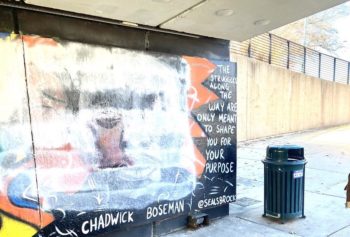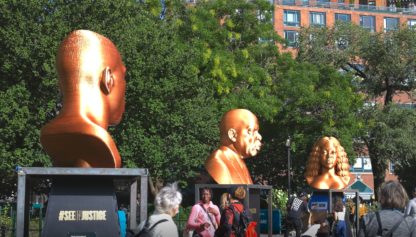On Wednesday, freshman Democrat Rep. Ilhan Omar introduced a measure that would assert that demonstrating in the form of boycotts is a constitutionally protected freedom of speech.
Omar, who began serving as Minnesota’s 5th Congressional District representative earlier this year, introduced the legislation on Tuesday, July 16.

“We are introducing a resolution … to really speak about the American values that support and believe in our ability to exercise our first amendment rights in regard to boycotting,” Omar told Al-Monitor earlier this week of her plan to introduce the measure. “And it is an opportunity for us to explain why it is we support a nonviolent movement, which is the BDS movement.”
Still, the resulting resolution does not mention the Boycott, Divestment, Sanctions movement, which “works to end international support for Israel’s oppression of Palestinians and pressure Israel to comply with international law,” according to the global campaign’s official website.
The resolution is known as HR 496 and counts Democratic Reps. John Lewis of Georgia and Rashida Tlaib of Michigan among its six total co-sponsors. The bill, which has been referred to the House Committee on the Judiciary, states that “governments and nongovernmental organizations alike have sought to criminalize, stigmatize, and delegitimize the use of boycotts in an attempt to stifle constitutionally protected political expression.”
Interestingly, Lewis also co-sponsors House Resolution 246, which is identified in the resolution title as “Opposing efforts to delegitimize the State of Israel, and the Global Boycott, Divestment, and Sanctions Movement targeting Israel.”
The goal of the Ilhan’s measure is threefold. It asks that the House affirms all Americans have the right to take part in boycotts seeking civil and human rights in this country and internationally, which is covered under the Constitution’s First Amendment; it opposes unconstitutional congressional resolutions to keep people from boycotting to advance civil rights efforts in the U.S. and around the globe; finally, it pushes Congress, States, and civil rights activists from all areas to strive to protect the right of advocacy for everyone by fighting against antiboycott measures.
The measure also points out the various examples of cases and incidents where boycotting was employed throughout history. They include the landmark 1982 case NAACP v. Claiborne Hardware, where the Supreme Court determined “[t]he right of the States to regulate economic activity could not justify a complete prohibition against a nonviolent, politically motivated boycott.” The case stemmed from Black residents of Mississippi’s Claiborne County who voted at a 1966 NAACP meeting to boycott white merchants when white elected officials failed to meet their list of demands. The general civil rights boycotts led by activists during the ’60s and ’70s were also mentioned in the revolution.


